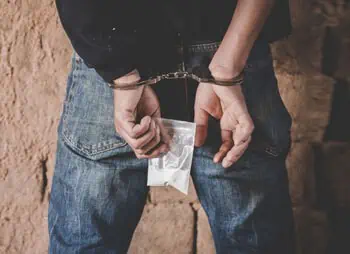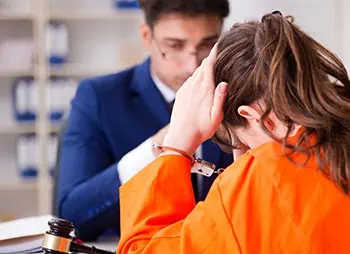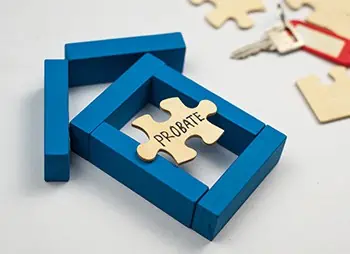
The police know that a crime was committed. They believe that you did it. However, they have no evidence. Can they still arrest you? Technically, they should not. After all, an arrest requires probable cause. You get probable cause by examining the evidence. The laws are a bit vague — there is no set “amount” of evidence police officers need, for instance, so whether or not they had probable cause can look different from case to case — but the idea is that evidence comes first, establishes probable cause, and then they make the arrest. That doesn’t mean that the evidence will hold up in court, of course. Maybe an eyewitness made a statement that the police used as evidence.…Read More

Criminal courts have a duty to sentence an individual to punishments that fall in line with the seriousness of the crime for which the person was convicted. There are many different factors that go into these decisions, and the judge must consider them all. If you’ve been convicted of a crime, you should understand what points might be utilized to determine what sentence you will face. One of the first things that a judge must look at is the sentencing guidelines for the specific crime. Some crimes have mandatory minimum sentences that must be handed down. In other cases, judges have more discretion but there are usually sentence ranges and specific options that they can review. Some other factors that…Read More

Being placed on probation is an alternative to incarceration; however, it comes with some very strict requirements for how the person must behave and interact while they’re in society. The probationers are given these rules when they are placed on the program. There is a supervision officer who is charged with overseeing those on probation while they complete their sentences. For the most part, everyone who is on probation must comply with the same terms. These typically include things like holding a job, living in an approved location, staying out of legal trouble and avoiding the use of drugs and alcohol. Some people may have to go through drug or alcohol testing, which may occur randomly or at each visit…Read More
After a few drinks with friends, you hit the road and drive home. Then, next thing you know, there are blue and red lights flashing as a police officer asks you to pull over. Your mind starts racing a mile a minute because you aren’t sure where you went wrong and believed you were sober enough to go behind the wheel. In this situation, the police officer might not know why they are pulling you over yet either. Maybe they think you’re impaired or maybe you just drove through a DWI checkpoint. Either way, it’s your constitutional right to not face a DWI arrest without proof of some wrongdoing or probable cause. In the case of a DWI, the police…Read More
Generally speaking, a DWI stop involves some type of probable cause or reasonable suspicion. A police officer cannot make a random stop. He or she must have a reason for the stop, such as believing that the driver is intoxicated or watching that driver break a traffic law. DWI checkpoints seem to fly in the face of this rule. They allow police to simply stop all cars that come through the checkpoint, with or without reason. Some have argued that this violates the Fourth Amendment rights that citizens have by subjecting them to an unfair search. That, in turn, leads to the belief that these checkpoints are illegal themselves or that arrests won’t hold up in court. This issue has…Read More
When you find yourself facing criminal charges, you’re probably going to start thinking about your future. You’re likely worried about more than just spending time behind bars or paying fines. You’re also worried about things like your career and whether or not you can get a job with something that stays on your record for life. We do know from studying the statistics that it’s harder to land a job with a record. Some jobs are out of reach. For instance, a felony conviction means you cannot own a gun, so any job that requires carrying a gun becomes impossible. But even for jobs that you still qualify for, getting a second interview is harder. For white applications, a record…Read More
If you’ve become addicted to opioids and have struggled to get new prescriptions filled, you may have turned to heroin or other drugs to fill that void. Unfortunately, these drugs are highly addictive, and there is a chance that you will struggle to avoid illegal acts. It is troubling to be arrested for drug use, but you should know that times are changing. While a prison sentence and fines might have been the only options for a judge in the past, North Carolina now has drug recovery courts that are there to help those who are chemically dependent on drugs. Drug courts arose as a direct result of needing to find new ways to help those with addictions. Prison isn’t…Read More
Regardless of the circumstances that led to your arrest on assault charges, you are facing big trouble. Like other states, North Carolina takes a harsh approach to assault charges, but the laws are especially complex in this state. Although you will have a chance to defend yourself, you should understand that prosecutors typically pursue convictions for violent crimes aggressively. Your best bet to avoid a conviction and serious consequences is to seek counsel from an experienced attorney. This allows you to discuss your circumstances candidly with someone whose only interest is advocating for you and your rights. Unlike many other states, the penalties for assault and/or battery convictions in North Carolina can vary greatly. Courts review each case individually to…Read More
A person who is on probation must abide by the terms of the program. These are given to them by their probation officer or someone else in the office. A person who doesn’t comply with the applicable terms can face a probation violation. This is a legal matter than can have dire consequences. Some individuals might think that once their probation term is expired, they don’t have to worry about any probation violation issues. The state’s laws set an extended period of jurisdiction for this to happen in some cases. There are three criteria that must be present in order for a probation violation hearing to occur after the person has been released from probation: A written violation report is…Read More
Dealing with all the penalties that come along with a DWI charge can be inconvenient and frustrating. You can’t just pay a fine and move on, like you can when faced with many other driving tickets. Of course, driving tickets equate to points that can stack up and lead to a driver’s license suspension. But they don’t come with the same list of punishments or weight of a misdemeanor or felony charge that a DWI can carry. Driver’s License Suspension Whether you use your license to transport yourself or your family, facing a license suspension or revocation can impact your day-to-day life. You might have to find alternate ways to get to work or transport your children to school or…Read More